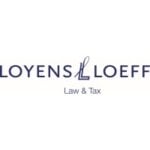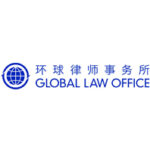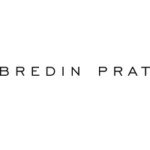-
What proportion of transactions have involved a financial sponsor as a buyer or seller in the jurisdiction over the last 24 months?
Transactions involving financial sponsors as a buyer or seller in 2024 and 2025 represented a large proportion of the total transactions reflecting a continuing positive trend of the relative number of deals involving private equity, primarily driven by the strong presence of private equity firms active in the jurisdiction. 2023, 2024 and the beginning of 2025 were quieter in terms of deal count and volume with the market volatility, inflation fears, higher cost of borrowing and valuation misalignment, as well as political volatility and geopolitical uncertainty, proving to be an obstacle in many instances. The second half of 2025 saw a surge in private equity activity on the market, with larger, more complex M&A and restructuring transactions by the end of the year.
-
What are the main differences in M&A transaction terms between acquiring a business from a trade seller and financial sponsor backed company in your jurisdiction?
The differences in approach between a trade seller and financial sponsor backed entity are not specific to the Luxembourg market. In general, financial sponsor backed sellers are reluctant to grant anything other than the basic warranties (i.e. warranties as to their own ability to enter into the transaction documents and perform thereunder and title to shares). It is also less common to have delayed escrow payments, group or parent guarantees or earn out mechanisms in such transactions as, typically, such sellers wish to have a clean exit, complete the sale as promptly as possible and distribute the consideration to ultimate holders. Delayed escrow payments or earn out mechanisms have become more common in deals throughout the year, particularly as means to bridge the valuation gap.
-
On an acquisition of shares, what is the process for effecting the transfer of the shares and are transfer taxes payable?
The process for effecting the transfer of shares depends on the type of corporate entity involved and the form of shares. In Luxembourg public limited liability companies (sociétés anonymes), partnerships limited by shares (sociétés en commandite par actions) and private limited liability companies (sociétés à responsabilité limitée), shares are typically in registered form with ownership being recorded in a share register maintained at the registered office of the company. For private limited liability companies (sociétés à responsabilité limitée), the shareholders are also registered with the Luxembourg Trade and Companies Register (Registre de Commerce et des Sociétés) and any change in ownership must be notified to and published with such register. Bearer shares are limited in application due to the requirements to deposit same with a recognised depositary. Transfers of registered shares are recorded by way of private share transfer agreements and there is no requirement for such share transfers to be notarised. In private limited liability companies (sociétés à responsabilité limitée), share transfers to non-shareholders must first be approved by shareholders holding at least 75% of the shares of the company (which threshold can be lowered to 50% in the articles of association of the company). There is no such mandatory prior shareholder approval required by law for share transfers in other corporate entities. There are no transfer taxes (stamp duty or otherwise) payable on the sale of shares in a Luxembourg company.
-
How do financial sponsors provide comfort to sellers where the purchasing entity is a special purpose vehicle?
Where the purchasing entity is a special purpose vehicle, financial sponsors can provide comfort to sellers by: providing an equity commitment letter or parent guarantee from the ultimate fund; providing debt commitment letters from the relevant banks, where a deal is financed by external bank debt. Debt commitment letters are less commonly seen in practice – if seller requires specific comfort as to the buyer’s ability to finance an acquisition, it is more typical to have buyers provide an equity commitment letter / undertaking or parent guarantee.
-
How prevalent is the use of locked box pricing mechanisms in your jurisdiction and in what circumstances are these ordinarily seen?
Locked box continues to be commonly used as a pricing mechanism and is more typically seen when parties (in particular selling financial sponsors) are looking to minimise post transaction adjustments to consideration as would occur with closing accounts pricing mechanism.
-
What are the typical methods and constructs of how risk is allocated between a buyer and seller?
Common to other jurisdictions, the standard way of allocating risk between a buyer and seller in Luxembourg is through use of warranties and indemnities in the acquisition agreement. Financial sponsors are reluctant to give anything other than the basic warranties upon sale (i.e. as noted in the response to question 2 above, it is sought to limit warranties to warranties as to title, capacity and authority). The ultimate approach agreed to the level of warranty and indemnity protection is very much dependent on the relative bargaining power of the parties involved. As noted below, W&I and tax indemnity insurance products have become increasingly popular.
-
How prevalent is the use of W&I insurance in your transactions?
W&I insurance continues to be very popular and has been a feature of many transactions in 2025. When used, it can simplify the negotiation of the warranties between seller and buyer but, equally, putting such insurance in place can lengthen and complicate the due diligence process as the insurers also require access to the due diligence documentation and legal opinions.
Separately, we have observed a growing interest in tailored tax indemnity insurance products as a way to mitigate potential tax exposure arising from the tax treatment of prior transactions.
-
How active have financial sponsors been in acquiring publicly listed companies?
Despite garnering a lot of attention, take-privates have been approached with caution in 2025 due to rising geopolitical tensions and potential for volatility in the market. Financial sponsors remain interested to propel takeover offers in other European jurisdictions with a Luxembourg-based structure.
Nevertheless, the landscape is not without its challenges. Factors such as execution risks, market volatility, heightened financing and execution costs, and the intricate complexities associated with the public status of the target constrain the successful fruition of these transactions, resulting in only a limited number both launching and completing successfully.
-
Outside of anti-trust and heavily regulated sectors, are there any foreign investment controls or other governmental consents which are typically required to be made by financial sponsors?
Luxembourg has an open economy and offers a business climate favourable to foreign investment, without any general system of foreign investment control or governmental consent requirements for foreign investors. Non-Luxembourg residents are free to incorporate new Luxembourg companies or acquire existing Luxembourg companies without restriction.
On 13 June 2023 the Luxembourg Parliament passed a law implementing Regulation (EU) 2019/452 of the European Parliament and of the Council of 19 March 2019 establishing a framework for the screening of foreign direct investments into the Union (the Law). The Law entered into force on 1 September 2023, introducing a national mechanism for the screening of foreign investments from outside the European Economic Area made through Luxembourg entities conducting certain activities in sectors regarded as critical (e.g. energy, transport, water, health, communications, media etc.) on the Luxembourg territory and excluding portfolio investments, being investments which are solely financial and without any element of control being exercised. The Law details the notification and screening procedure applicable to relevant investments, as well as enforcement measures (e.g. withdrawal of licenses, fines, reparatory measures etc.). Its impact in practice is yet to be seen considering its recent introduction; however, to the extent that a transaction does not relate to one of the sectors identified as critical in the Law or is solely a financial investment, it should not be of relevance.
The Foreign Subsidies Regulation (the Regulation) also took effect in the EU in 2023. The Regulation seeks to ensure a level playing field for all companies operating in the market in the EU, by targeting any undertaking that has received a financial contribution from a non-EU Member State (a foreign subsidy) which is liable to improve such undertaking’s competitive position and actually or potentially negatively affect competition in the internal market. The European Commission (the Commission) may perform a ‘balancing test’ to weigh the subsidy’s positive effects against its distortive impact. The Regulation introduces three procedures:
- A notification-based procedure, where the acquired company, one of the merging parties or the joint venture generates an EU turnover of at least EUR 500 million and the parties received foreign subsidies of more than EUR 50 million in the previous three years;
- A notification-based procedure to investigate bids in public procurement procedures, where the estimated value of such contract is at least EUR 250 million and the bid involves a foreign subsidy of at least EUR 4 million per third country in the previous three years; and
- An ex officio procedure where the Commission can start a review on its own initiative for any other market situations.
-
How is the risk of merger clearance normally dealt with where a financial sponsor is the acquirer?
Luxembourg had until now chosen not to put in place any merger control on a national level and the Luxembourg competition authority had only the power to intervene after completion of a transaction should it consider there to be anti-competitive practices or an abuse of a dominant position as a result of the relevant acquisition. This is set to change as a bill of law (no. 8296) setting up a merger control regime in Luxembourg (the Bill) was submitted to Parliament on 23 August 2023. It is not possible to provide an estimated timetable for the adoption of the Bill, as it remains in the early stages of the legislative process. Under the current draft Bill (which is subject to potential change in the context of the legislative process), where relevant thresholds are met ((i) combined turnover of all parties involved of over EUR 60 million; and (ii) at least two of the parties involved have an individual annual turnover generated in Luxembourg of over EUR 15million) entities will need to notify the Luxembourg competition authority before implementing any transaction which is intended to have, as a result ,a change of control on a lasting basis. It is worth noting that the Bill excludes acquisition transactions carried out by investment funds, securitisation funds, securitisation vehicles or pension funds, except for private equity transactions. Transactions involving captive insurance and reinsurance undertakings are also excluded from scope.
Transactions may also of course require merger clearance from competition authorities in other jurisdictions. Typically merger clearance is a condition precedent to completion with transactions in which merger clearance is required being structured with a split signing / completion.
As is the case with all aspects of a transaction, the ultimate allocation of risk between the parties is made on a case-by-case basis depending on the relative bargaining power of the parties involved.
-
Have you seen an increase in (A) the number of minority investments undertaken by financial sponsors and are they typically structured as equity investments with certain minority protections or as debt-like investments with rights to participate in the equity upside; and (B) ‘continuation fund’ transactions where a financial sponsor divests one or more portfolio companies to funds managed by the same sponsor?
While control investments continue to dominate among deals involving financial sponsors, minority equity investments such as co-investments or non-control stakes taken alongside existing shareholders have continued to be popular in 2025, often emerging as solutions for liquidity gaps or on the opposite a tool to diversify risk. Financial sponsors also continue to show an interest for minority investments via highly subordinated convertible or preferred debt instruments (often with equity kickers in the form of warrants) or a mix between subordinated debt instruments and equity investments.
Commonly negotiated minority protections include: Information rights; Board representation or observer rights; and Veto rights with respect to certain key decisions. It is common for such minority investors to also negotiate certain exit rights such as tag along rights, rights of first refusal and to a lesser extent, put options. Typically such rights are set out in the relevant shareholder or investor agreement which may be subject to Luxembourg law, or to the laws of another jurisdiction, with key provisions frequently being replicated in the articles of association of the Company. While shareholder / investor agreements relating to Luxembourg companies were historically subject to the laws of England and Wales or the laws of New York, there has been a noticeable shift in approach in this respect in the last years with parties showing a much greater willingness to use Luxembourg law as the governing law of their agreements.
Similar to 2024, GP-led secondary transactions (including continuation funds) have continued to intensify throughout 2025, in response to pressure from limited partners to have access to liquidity and as a means to extend exposure to quality performing assets and avoid ill-timed exits in deteriorating market conditions and on the back of an increasingly positive sentiment from limited partners. Structuring of carried interest, due diligence and conflicts of interests are common areas of interest associated with GP-led secondary transactions.
-
How are management incentive schemes typically structured?
Management incentive schemes can be implemented in various ways, depending on a number of different factors including the type of corporate entity involved and the residence of the management who are to participate. Most commonly they take the form of the issuance of a separate class of shares with specific economic rights attached. These can be held directly or through a pooling vehicle depending on the desired control structure and the number of participants or publicity of participants’ information (see answer to question 3). It is worth noting in the context of management incentive schemes and, more generally, management participation in Luxembourg entities, that Luxembourg public limited liability companies (SAs) have the ability to issue free shares to employees and management, both of the SA itself and certain group companies. This offers significant flexibility in the implementation of management incentive schemes in such entities – before the free shares concept was introduced in 2016, the Luxembourg legal requirement to pay up a minimum of one-fourth of the nominal value of a share in an SA prior to issuance had complicated the process. It is also possible to issue to management share like securities known as parts bénéficiaires whose features are as set out in the articles. Such flexibility with respect to voting rights, economic entitlement, make them an attractive option for use in certain situations. The sociétés en commandite spéciale (without legal personality) and the sociétés en commandite simple are however the most popular Luxembourg vehicles for structuring management incentive schemes, due to their flexibility and partnership governance features (allowing full control by the general partner and limited to no voting rights for limited partners).
-
Are there any specific tax rules which commonly feature in the structuring of management's incentive schemes?
(i) Carried interest tax regime
With effect as from tax year 2026, Luxembourg plans to introduce a new carried interest regime designed to reinforce the country’s competitiveness by offering a clearer and more attractive tax framework for Alternative Investment Fund (AIF) managers and private capital professionals. The regime distinguishes between two categories of carried interest:
(i) “Contractual” carried interest not paid on interests or shares in an alternative investment fund will be taxed at a quarter of the regular income tax rate (i.e., maximum approx. 11.45%).
(ii) Carried interest paid in relation to a direct or indirect interest or shareholding in an AIF, including in partnership form, may be tax exempt if the interest or shareholding is held for more than six months after acquisition and the participation in the AIF is below 10%.
The scope of eligible beneficiaries has been significantly expanded to include not only employees of AIFMs and management companies but also investment advisers, independent board members or partners. The two regimes remain subject to anti-abuse rules to avoid that regular bonuses are artificially transformed into carried interest.
The Luxembourg favorable tax regime on profit-participating bonuses: On 1st January 2021, the so called “prime participative regime applicable to bonuses granted to employees on the basis of employer’s annual results was introduced. The purpose is to better align the interests of beneficiaries with those of the employer for their employment services. These bonuses are (within certain limits) 50% exempt at the level of the employee for Luxembourg personal income tax purposes while being tax-deductible at the level of the employer as operational expenses. This regime will only be available for employees that are (1) Luxembourg taxpayers with income derived from an employment activity and (2) affiliated to the Luxembourg social security regime or any social security regime covered by a bilateral or multilateral social security convention that applies to Luxembourg. The amount of bonuses paid under this regime shall not exceed 30% of the employee’s annual gross remuneration (excluding any benefits in cash and in kind). At the level of the employer, the bonuses cannot exceed 7.5% of the employer’s annual result of the financial year immediately preceding the financial year during which the bonuses are granted (e.g., 2024 annual result in case of bonuses granted in 2025). The bonuses are paid at the discretion of the employer. The employer is free to choose which employees are eligible to this regime.
-
Are senior managers subject to non-competes and if so what is the general duration?
Within the context of an employment contract, a non-compete clause cannot be for a period exceeding 12 months after termination of the contract. However, a manager’s contract which is not subject to the provisions of the Luxembourg Labour Law Code (Code du Travail) is subject to the ordinary provisions of the Luxembourg Civil Code, which provides that the parties are subject to the principle of contractual freedom. The company is therefore free to decide whether or not it wants to impose a non- competition obligation on the manager for a certain period of time after termination of his/her contract. There is no standard duration or limitation with regard to the duration of a non-compete clause provided in a manager’s contract. However, in order for a company to restrict a manager’s freedom of commerce and industry and free competition, there must be a legitimate interest at stake. The legitimate interest must therefore justify the period of time during which the manager is subject to a non-compete clause. If a non-compete clause is disputed before a Luxembourg court, the courts will (i) require the clause to be limited in time in order to avoid a perpetual prohibition on the manager but will also (ii) analyse the company’s legitimate interest in the non-compete obligation imposed on the manager and will consequently compare and aim to balance out the interests of both contracting parties.
-
How does a financial sponsor typically ensure it has control over material business decisions made by the portfolio company and what are the typical documents used to regulate the governance of the portfolio company?
There are a number of common approaches to ensuring that a financial sponsor has control over material business decisions. Typically, even with a minority shareholding, financial investors will seek to have a board nomination right (at a minimum they are granted information rights and observer status). As a matter of Luxembourg law, it is not possible to have a shareholder appoint a board member unilaterally; however, the common approach is to be granted a nomination right with parties giving a voting undertaking to vote in favour of the appointment of a person so nominated. In addition and depending on the financial sponsor’s negotiation power in the particular transaction, they may provide in the relevant documentation that certain key business decisions can not be taken without either (i) the vote of the financial sponsor’s nominated board member or (ii) the consent of the financial sponsor shareholder. It is worth noting that if an element of control is vested in the financial sponsor only through a nominated board member, this may not offer adequate comfort as such board member is required as a matter of Luxembourg law to act in the company’s interest and would not therefore be free to take into account its nominating shareholder’s interest in a specific matter. Board composition and alignment of voting rights must also be considered. When it is agreed that certain matters may only be carried out by the board and/or the shareholders having obtained the consent of the financial sponsor shareholder, it is common to have such recorded in the Articles as reserved matters. Although not a right which vests any control in a shareholder, it is also standard practice to have all shareholders in a company vested with standard information rights. Typically a shareholders agreement, together with the articles of association of the portfolio company, are used to regulate its governance. As Luxembourg law requires that the articles of the traditional corporate vehicles (SARL, SA and SCA) be published, parties may choose to include certain confidential information in the shareholders agreement only. As mentioned in the response to question 11 above, the sociétés en commandite spéciale (being without legal personality) and the sociétés en commandite simple have become more popular in recent years, one advantage of them being that the relevant partnership agreement is not required to be published in full and there is therefore no issue regarding potential misalignment of certain provisions as there can be when governance is included in both a shareholders agreement and the articles of association but without being replicated in full in the articles of association to avoid public disclosure of confidential information.
-
Is it common to use management pooling vehicles where there are a large number of employee shareholders?
It is relatively common to have a separate vehicle through which management holds shares (typically the pooling vehicle takes the form of a société en commandite spéciale or a sociétés en commandite simple) – the drivers for putting in place such a vehicle are usually practical considerations to avoid complicating governance at the level of the main company and potentially exit planning by benefitting from the withholding tax exemption where management are not EU resident or have special tax regimes.
-
What are the most commonly used debt finance capital structures across small, medium and large financings?
In Luxembourg, traditional loans granted by banks or other financial institutions are still commonly seen across all types of financing, however with a noticeable shift towards private debt products on the back of tighter lending conditions. High yield bonds (sometimes with a conversion feature) and PIK Notes are also frequently seen in the financing of transactions in the Luxembourg legal market. Hybrid instruments such as preferred equity certificates are also seen regularly on the market as an instrument of choice for financial sponsor providing mezzanine financing. Private debt is also driving a structural change in the financing market, as private lenders gain a more significant market share by showing a willingness to engage in more complex capital structures and provide financing or refinancing in situations – such as opportunistic or, to a certain extent, distressed scenarios – that traditional banks tend to avoid.
-
Is financial assistance legislation applicable to debt financing arrangements? If so, how is that normally dealt with?
Financial assistance rules are applicable to public limited liability companies and provide that a company may not advance funds, make loans or provide security whether directly or indirectly, with a view to the acquisition of its shares by a third party. The financial assistance rules do not apply to Luxembourg private limited liability companies. However, a transaction which raises financial assistance concerns may also be difficult for a company to approve from a corporate interest perspective – therefore for private limited liability companies, even if not subject to financial assistance rules, this must be considered carefully. If a company which is subject to financial assistance rules directly (SA, SCA) takes an action in breach of the financial assistance rules, such action will be null and void. Breach of the financial assistance rules also triggers potential criminal and civil liability of the directors of the company. There is a ‘whitewash’ procedure available under Luxembourg law which can be followed if parties wish to proceed with a transaction notwithstanding that it constitutes financial assistance; however, such procedure is not commonly applied in practice.
-
For a typical financing, is there a standard form of credit agreement used which is then negotiated and typically how material is the level of negotiation?
The vast majority of the credit agreements are governed by foreign law, and based on the Loan Market Association standard. Discussions on the Luxembourg elements of the credit agreement are often limited. The main concerns remain any corporate interests issue relating to the granting of cross stream and upstream guarantees or any potential financial assistance (in particular in acquisition finance). (See the response to question 18 above.)
-
What have been the key areas of negotiation between borrowers and lenders in the last two years?
The scope of representations and covenants remain a hot topic in many finance deals. In that respect, the number of covenant-lite credit agreements seen on the market is significantly increasing.
-
Have you seen an increase or use of private equity credit funds as sources of debt capital?
Private credit funds have become a prominent source of debt capital in recent years. Traditionally, their involvement was most visible as mezzanine lenders, providing an intermediate layer of financing within larger transactions.
More recently, private credit funds have established a strong presence across all layers of the capital structure. Their flexibility and willingness to engage in various financing scenarios have allowed them to play an increasingly significant role, not only as mezzanine lenders but also in senior, junior and unitranche positions. This expansion reflects the evolving landscape of debt financing, where private credit funds are recognised for their capacity to offer bespoke financing arrangements and respond to market opportunities that traditional lenders might avoid.
Capital raising for private debt funds continued its strong momentum in 2025.
Luxembourg: Private Equity
This country-specific Q&A provides an overview of Private Equity laws and regulations applicable in Luxembourg.
-
What proportion of transactions have involved a financial sponsor as a buyer or seller in the jurisdiction over the last 24 months?
-
What are the main differences in M&A transaction terms between acquiring a business from a trade seller and financial sponsor backed company in your jurisdiction?
-
On an acquisition of shares, what is the process for effecting the transfer of the shares and are transfer taxes payable?
-
How do financial sponsors provide comfort to sellers where the purchasing entity is a special purpose vehicle?
-
How prevalent is the use of locked box pricing mechanisms in your jurisdiction and in what circumstances are these ordinarily seen?
-
What are the typical methods and constructs of how risk is allocated between a buyer and seller?
-
How prevalent is the use of W&I insurance in your transactions?
-
How active have financial sponsors been in acquiring publicly listed companies?
-
Outside of anti-trust and heavily regulated sectors, are there any foreign investment controls or other governmental consents which are typically required to be made by financial sponsors?
-
How is the risk of merger clearance normally dealt with where a financial sponsor is the acquirer?
-
Have you seen an increase in (A) the number of minority investments undertaken by financial sponsors and are they typically structured as equity investments with certain minority protections or as debt-like investments with rights to participate in the equity upside; and (B) ‘continuation fund’ transactions where a financial sponsor divests one or more portfolio companies to funds managed by the same sponsor?
-
How are management incentive schemes typically structured?
-
Are there any specific tax rules which commonly feature in the structuring of management's incentive schemes?
-
Are senior managers subject to non-competes and if so what is the general duration?
-
How does a financial sponsor typically ensure it has control over material business decisions made by the portfolio company and what are the typical documents used to regulate the governance of the portfolio company?
-
Is it common to use management pooling vehicles where there are a large number of employee shareholders?
-
What are the most commonly used debt finance capital structures across small, medium and large financings?
-
Is financial assistance legislation applicable to debt financing arrangements? If so, how is that normally dealt with?
-
For a typical financing, is there a standard form of credit agreement used which is then negotiated and typically how material is the level of negotiation?
-
What have been the key areas of negotiation between borrowers and lenders in the last two years?
-
Have you seen an increase or use of private equity credit funds as sources of debt capital?


























